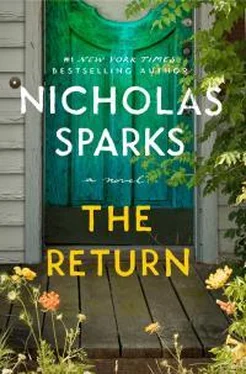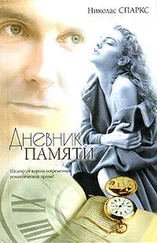In his working life, he’d been employed at the mill, turning logs into usable lumber. Like me, he finished his life with fewer fingers than when he started; unlike me, it didn’t cause his career to come crashing to an end. He used to tell me that unless a man has lost a finger on the job, it wasn’t a real job, which makes the idea that he raised my mother—a sophisticated, ambitious, cerebral woman if there ever was one—rather astounding. When I was younger, I used to suspect my mother had been adopted, but as I matured I eventually came to recognize that they shared an innate optimism and decency that informed everything they did.
My grandfather hadn’t had an easy time after my grandmother had died. I don’t remember her at all, as I was still toddling around in diapers the only time we met. But I can recall my mom emphasizing that it was important to visit him, so that he wasn’t always alone. For my grandfather, there was only one woman; he’d loved once and for all, right up until an epileptic seizure took her life. There’s still a photograph of her on the wall of the bedroom, and after moving in, I couldn’t imagine taking it down, even though I never knew her. That she was my grandfather’s North Star was more than enough reason to keep it hanging exactly where it was
But it was odd being at the house. It felt empty without my grandfather and wandering into the barn deepened the feeling of loss. It had the same cluttered atmosphere as the house I’d inherited. Inside were not only mothballs and a wide assortment of tools, but an old tractor, numerous engine parts, bags of sand, pickaxes, shovels, a rusting bicycle, an Army helmet, a cot and blanket that looked as though someone had actually slept there, and countless remnants of a lifetime of collecting things. I sometimes wondered whether my grandfather had ever thrown anything away, but close inspection revealed no trash, ancient magazines, newspapers, or debris that belonged in a garbage can; there were only items that he felt he might one day need for whatever project he was working on.
On the night I received the call from the hospital, I wasn’t doing much of anything. There was no reason I couldn’t have visited him that week, or a month or even a year earlier. Or even, I knew, when I’d been at my very worst. He’d never been a man to judge, and even less likely when it came to the effects of war on a person. At twenty he’d been shipped to North Africa; in the years that followed he’d fought in Italy, France, and then Germany. He’d been wounded at the Battle of the Bulge, only to return to his unit not long after the Army crossed the Rhine. I knew nothing about any of it from him, since he never spoke about the war. My mom mentioned it, though, and a few days after my arrival here, I discovered the records, along with his Purple Heart and various service medals.
According to my mom, he got interested in bees not long after he built the house. Back then, there’d been a farm up the road and my grandfather had worked there, before getting a job at the mill. The farmer had beehives but didn’t like tending to them. My grandfather was put on the task. Since he knew nothing about beekeeping, he checked out a book from the library and eventually learned the rest on his own. To him, they represented an almost perfect species, and he’d hold forth on the subject to anyone who would listen.
I’m sure he would have told the doctors and nurses at the hospital in Easley about them if he’d had the chance. But he didn’t. As soon as I got the call, I booked a flight to Greenville, South Carolina, via Charlotte. There, I rented a car and sped down the highway; despite all that, I arrived nearly eighteen hours after I’d heard what happened. By then, he’d been in the ICU for more than three days. It had taken that long to learn my name; the stroke first left him unconscious, and then largely unable to speak. The entire right side of his body was paralyzed, the left side only slightly better. As soon as I entered the ICU, I took note of the readings on the various monitors and after scanning the chart, I knew he didn’t have much longer to live.
The bed seemed to dwarf him. I know it’s a cliché—that this is something that practically everyone says—but in his case, it was true. He’d lost a lot of weight since I’d seen him last, and the slack, lopsided expression on his face, even as he slept, nearly broke my heart. I took a seat near the bed and reached for his hand; it felt bony and brittle, birdlike, and I felt my throat lock up. All at once, I hated myself for not getting there sooner; I hated myself for staying away for so long. For a long time, the only movement I saw was the labored rise and fall of his chest.
I talked to him, even though I wasn’t sure if he heard me. Quite a bit, if I remember correctly—making up for all the intervening years when I’d been too wrapped up in my own struggles to visit him. I told him about the explosion in Kandahar, and the trauma I experienced in the aftermath. I told him about Sandra—my most recent girlfriend—and our breakup. I told him that I was planning to begin another residency. And I thanked him, once again, for simply being there—as my real family, even if I’d taken him for granted at times—both before and after the death of my parents.
One of the nurses informed me that since his arrival, the only words he’d spoken were my name and Pensacola, which was how they were finally able to track me down. They told me that he’d been able to open his eyes and had tried to speak on occasion, only to rasp out unintelligible sounds. Still other times, he’d stared at them in bewilderment, as though he hadn’t known where or even who he was.
I was upset and worried, but also confused. Why was he here, in Easley, South Carolina? How had he gotten here? In all the time I’d known him, he’d never traveled as far west as Raleigh, and he’d come to Alexandria only once. After the war, and until just a few days earlier, I was fairly certain he hadn’t left the county in years. But Easley was a long way from New Bern. Six or seven hours on the interstate, maybe more, depending on traffic. At the time, my grandfather was ninety-one years old; where had he been going?
I would have suspected Alzheimer’s, except for the fact that in his letters, he’d seemed as lucid and thoughtful as ever. He’d always been good at that—writing letters to me—and while I answered a few of them, I usually ended up phoning him after receiving one of his missives. It was easier for me, and I can be lazy about some things, like putting pen to paper; I’m not proud of it, but that’s who I am. On the phone he was as clearheaded as ever. Older, of course, and maybe taking a bit longer to find the word he wanted, but certainly nothing that would indicate dementia severe enough to prompt a journey to a place he’d never mentioned before.
But staring at him as he lay unconscious made me wonder whether I was wrong about all of it. In the late-afternoon light, his skin took on a grayish pallor; by the evening, his breathing sounded painful. Though visiting hours were over, the staff at the hospital didn’t kick me out. I’m not sure why—perhaps because I was a physician, or because they could tell how much I cared for him. As nightfall came and went, I continued to sit with him, holding his hand and talking to him the entire time.
By morning, I was exhausted. One of the nurses brought me coffee, reminding me despite my exhaustion that there are good people everywhere. My grandfather’s physician came by on his rounds; I could tell by his expression after checking my grandfather that he was thinking the same thing I was: The kind, old man was entering the final stages of his life. Maybe hours left, maybe a day, but not much more than that.
It was around noon on that last day that my grandfather shifted slightly in his bed, his eyes fluttering halfway open. As he attempted to focus, I noticed the same confusion the nurses had described, and I leaned closer to his bed, squeezing his hand.
Читать дальше











![Николас Спаркс - Каждый вдох [litres]](/books/414723/nikolas-sparks-kazhdyj-vdoh-litres-thumb.webp)
